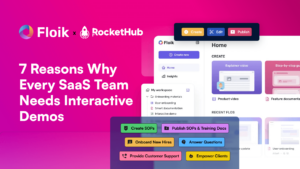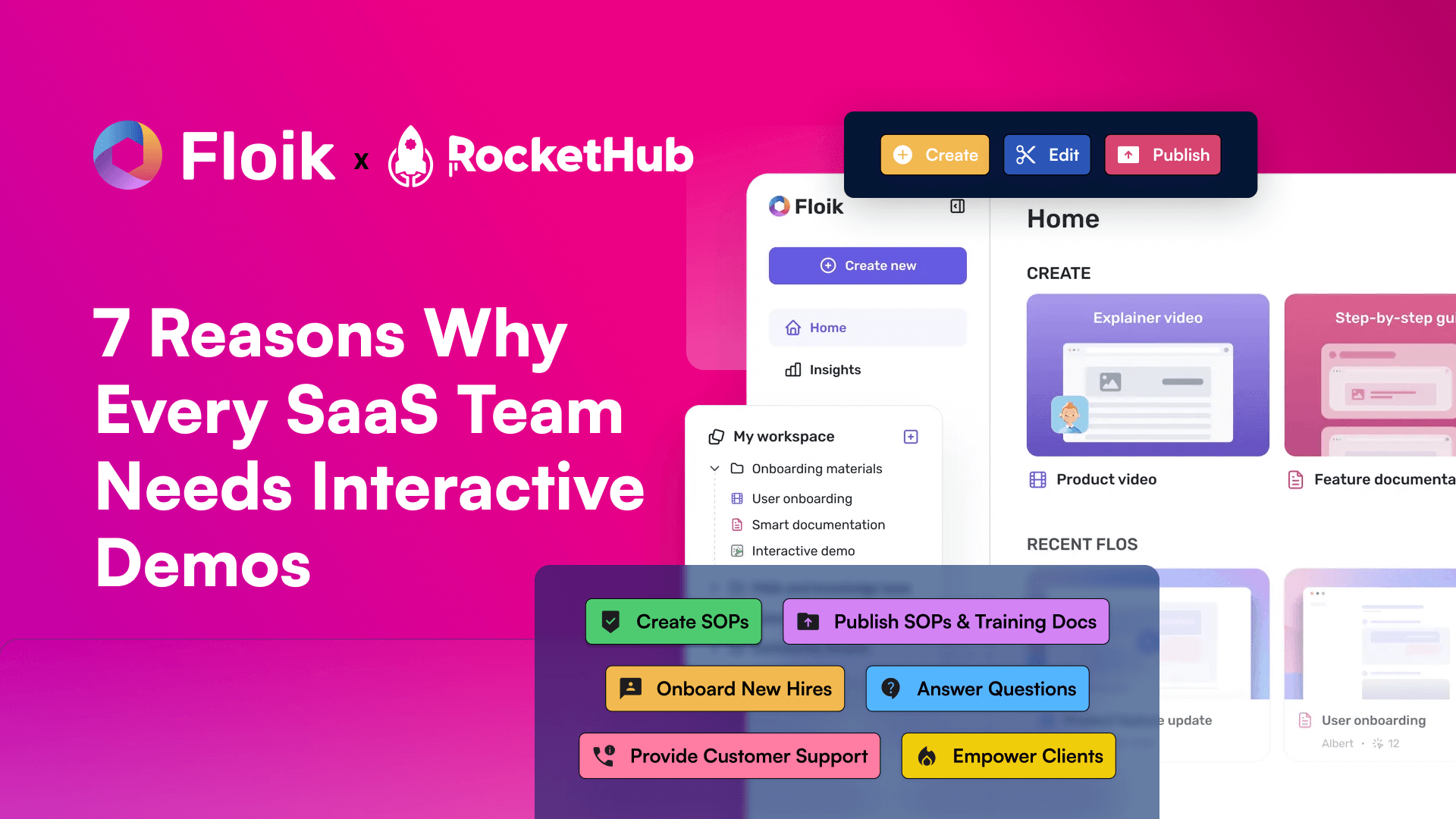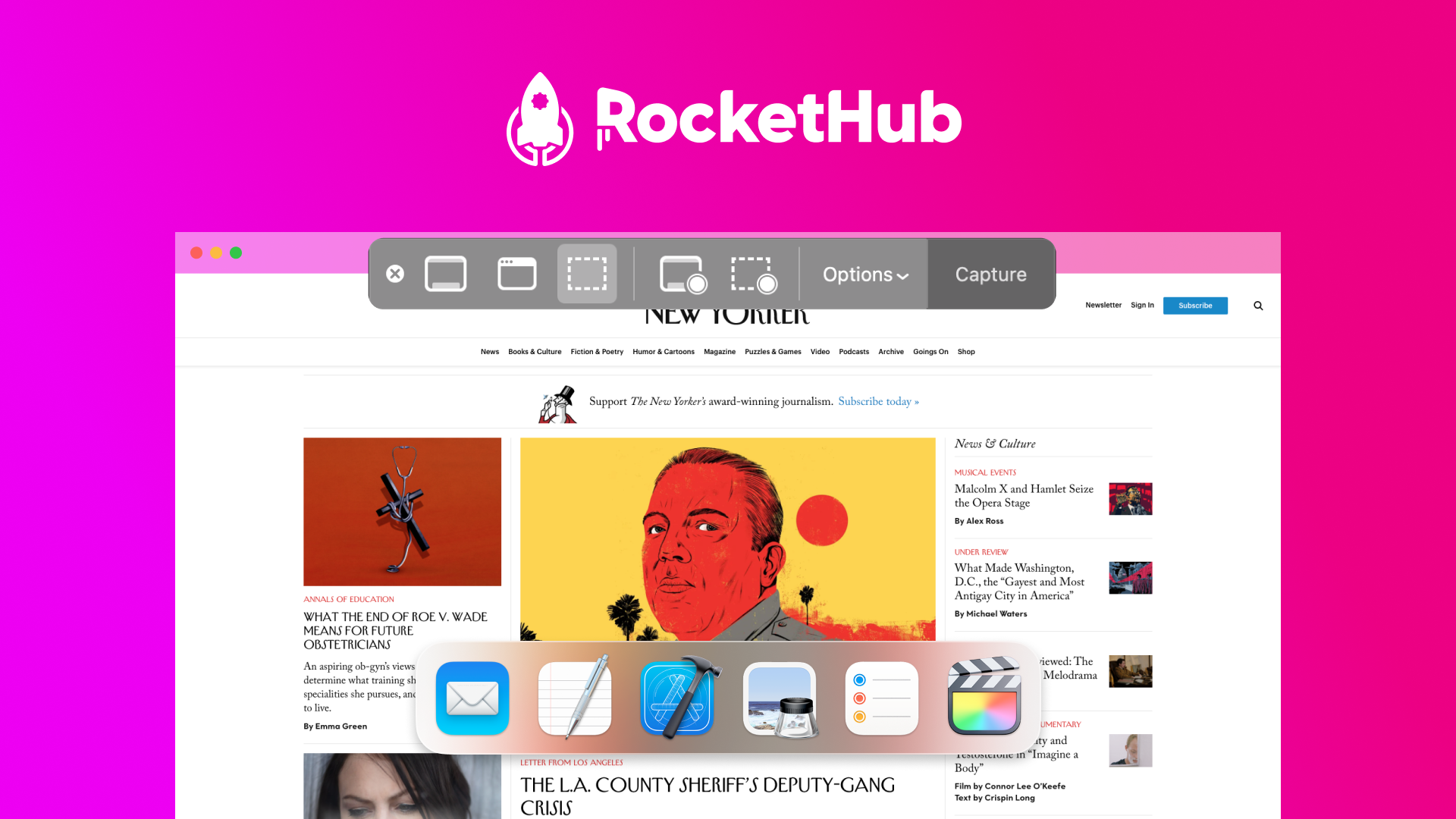
How to Build Brand Authority For Your SaaS in 2023
- Angel Alfred
- January 23, 2023

Establishing a foundation of trust and credibility helps to attract customers, boosts brand identity, and builds a reliable customer base. But how do you go about doing this? In this blog post, we will provide an overview of the key concepts and strategies that you need to understand and implement in order to build brand authority for your SaaS business. We will discuss topics such as establishing a strong online presence, creating valuable content, engaging in social media activities, and leveraging influencer marketing.
What is Brand Authority?
Brand authority is the ability of a brand to influence its target audience and be recognized as an authoritative source. It is the result of building trust over time and establishing credibility by providing consistent and quality content.
Brand authority helps to build trust and loyalty among customers, as well as differentiate your brand from competitors. With a strong brand authority, customers are more likely to trust and engage with your brand and your content. Developing a strong brand authority requires a clear and consistent brand identity, as well as engaging content that resonates with customers.
It is important to identify and understand the needs and interests of your target audience in order to provide content that is relevant and useful. By establishing a strong brand authority, you can create a loyal customer base and foster long-term relationships.
Why is it Important to Build Brand Authority for Your SaaS?
Building brand authority for your SaaS is important for a variety of reasons. It not only helps you stand out from the competition but also provides a platform for increased trust and credibility from current and potential customers. Brand authority establishes your SaaS as a leader in the industry and creates a more reliable and dependable experience for customers.
It builds brand recognition, which in turn can lead to greater customer loyalty and long-term growth. Lastly, brand authority can serve as a powerful tool to help you attract new customers, as it can help differentiate you from other SaaS offerings.
Investing in building brand authority is an essential step for any successful SaaS business, and can bring a multitude of benefits to your company.
10 Ways to Build Brand Authority for Your SaaS
With the right approach and dedication, you can create a powerful brand that will be more attractive to potential customers. So let’s get started on the journey of making your SaaS business a reliable and respected brand.
1. Stay Clear and Consistent with Your Messaging
The new normal has forced many businesses to pivot. While pivoting has been necessary for most marketers and businesses, that doesn’t necessarily mean losing your brand’s essence and messaging.
Stay consistent with your brand message and promise. Your tone, personality, visuals, and more all contribute to helping customers understand your brand and remember you. A recent study by Lucidpress even found that consistency in branding has helped increase revenue by 33%.
Follow this checklist to make sure you can stay clear and consistent with your own brand messaging:
Create a branding guidebook
Your branding guidebook is a comprehensive database about your brand: your official colors, logos, personality, fonts, image styles, and more. It includes important instructions and information anyone from your marketing team to your press partners ought to know about your brand assets.

Here’s an example of a brand guidebook by Spotify. Anyone can easily refer to this document when creating branded assets for the streaming company.
Keep your assets organized
It’s easier to stay consistent with your messaging and branding when you keep all your assets organized and easy to sort. Consider using an asset management tool to help you sort your content in one space that is shared across your team.
Streamline your approval process
Make it a habit within your company to have an organized flow for approving new visuals or marketing content. So when assets go from your creative team or agency and are published to your social media or website, you’re sure nothing falls through the cracks.
You can create a simple approval process that includes your creatives and marketing managers while making sure communication is horizontal and not overly bureaucratic, where it’s easy for everyone to share thoughts and ideas about brand materials.
2. Focus on Building Relationships
Relationship-building is a powerful way to boost your brand authority. Especially in the new normal where making sales can be slower for most businesses when you maintain great relationships with clients and prospects, you can cement their business in the future when things have returned to somewhat normal.
Part of building relationships with your customers is listening to what they say about your business or the solutions they’re looking for. Conducting market research or social listening can be an effective way to do just that.
Tune into customers’ good experiences and even negative ones. You can then make steps to repair any negative experiences or find ways to sustain the good ones.

Oracle’s LinkedIn strategy is an example of a brand that knows how to focus on building better relationships with followers and prospects. It uses the platform as a space to share relevant news and information, and the page has amassed over 6.4 million followers because of it.
3. Provide Top-Notch Customer User Experience
User experience can make or break what people think about your brand. It’s hard to boost brand authority when your users don’t appreciate what it’s like using your products or benefitting from your service.
A recent example of how important user experience is for building your brand’s authority is when digital note-taking and workspace tool Notion experienced a DNS issue that left users unable to access their databases, notes, and files within the cloud-based app for some amount of time.
Because of this, users were largely inconvenienced—some even contemplated leaving the app if it wouldn’t prioritize an offline mode or performance boost that would make issues like this less of a hassle. Of course, user experience is also in the details.
Issues like customer data protection are big elements of user experience that brands cannot ignore, especially in the digital era. Data breaches reflect poorly on brands, and may even lose customers’ trust. So if you want to boost your brand’s authority, make sure every part of your user experience is geared to be as positive as possible.
4. Publish More Educational Content on Your Blog
If you really want to be seen as a brand authority, you can’t go wrong with a solid content marketing strategy. When customers are turning to free resources like blogs and videos for information, the brand that can give them as much educational content is likely to be seen as the expert.
Look at what your customers are searching for
Check which topics are popular in your niche, and then try to outdo the competition with a better blog post. You can easily do this by including either more updated sources or data, including better examples or tips, or creating a blog post that answers more of your customers’ questions.
Focus on creating pillar content
Pillar content consists of long-form blog posts that cover a certain topic comprehensively. These not only come with great SEO benefits, but they also improve people’s perception of your brand. When you can cover a topic with more detail all in one post, customers will see that you’re the expert in the industry and that you know what you’re talking about.
As an added bonus, ask yourself if your blog posts pass the Share test. Would customers share your blog post because of how much value they got from it?
Read blog posts by RocketHub to have an idea of what we’re talking about.
5. Collaborate with Influencers in Your Industry
Next, one way to instantly boost your brand authority is by working with the right influencers in your industry.
According to a Benchmark Report by Influencer Marketing Hub, 91% of companies have reported positive experiences using this strategy, citing it to be effective.
This finding isn’t a far cry from a report published the previous year by SocialPubli, which says influencer marketing was ranked by over one-third of surveyed marketers as the single best channel for ROI, where their influencer-involved campaigns led to the most returns out of any other platform.
Of course, for your influencer campaign to be effective and profitable, it needs to be strategic. And one of the most important ways to keep your campaign strategic is by partnering with the right influencers.
The right influencer will always depend on your particular line of business: for example, having a marketing expert as a partner influencer for your marketing agency, or a renowned sales coach for your sales-related software.
The right influencers have a reach of their own, but more importantly, they are also seen as authorities in their niche. You can probably find prospective influencers on your own, but you might also consider platforms like Ampfluence that help you connect to influencers in your niche that have a genuinely engaged following.
6. Turn Your Employees into Your Brand Ambassadors
When it comes to getting ambassadors to champion your brand and boost your authority, there may be a group of people fitter for the role than even your paid influencers—your employees.
The other side of being indoors and working from home a majority of the time means consumers are now engaging with brands more, across multiple touchpoints. And in order to truly reach consumers at every touchpoint, you need real faces that will advocate for your brand.
The majority of social media users, for instance, trust posts made by actual people and creators over branded content. They value authenticity, and it’s simply easier to trust content created by real people than a faceless brand.
So why not put faces to your brand? Employees becoming brand ambassadors can provide customers and prospects an inside look at your company. It humanizes your brand and can convey trustworthiness to customers.
You can turn employees into brand ambassadors by putting up a program that incentivizes and encourages them to share news about your new offers and promotions. It can even be simple guidelines employees follow, such as how Starbucks encourages its partners to connect and engage online.
7. Guest Post on Reputable Publications in Your Industry
One simple way to boost your brand authority is by getting published in a major publication in your niche. When customers and prospects see that trusted and authoritative sites give you their platform to share your expertise, they’re more likely to believe you’re an authority as well.
There are some added bonuses to guest posting as well, including better search engine results, backlinks, and traffic.
Aim to get your guest blogs published on major sites, but if this is a new strategy for you, don’t be afraid to start with low-hanging fruit. Check publications for their guest contributor guidelines so you know what type of posts they accept.
The most important part about guest blogging is writing a high-value post over being salesy. Don’t promote your product or service—in fact, you may not even need to mention it unless you wanted to use your brand as a case study.
8. Monitor Your Brand Reputation on Social Media
When you’re on the road to building your brand authority, it’s helpful to know how your efforts are performing.
Commit to monitoring your brand’s reputation online by conducting social listening. When you do this, you’re tracking what people are saying about your brand in their own words and in the most organic way possible; no formal interviews or focus groups are needed.
By staying on top of your brand reputation, you can be an active participant in the conversation about your company or even your industry at large.
Tips for managing your brand reputation on social media
It’s worth looking into a social listening tool like Mention to help you track conversations about your brand and even chosen keywords in your industry in real-time. With a dedicated tool, you can set up filters and rules that can broaden your scope more than a simple social media feed might.
If you find positive brand mentions, be prompt to say thank you and celebrate with customers. If what you find is not-so-positive, consider this an opportunity to turn a negative experience into a positive one by providing immediate repair and action.
Of course, you can also monitor what influencers in your niche are talking about, so you can jump in with brand authority-boosting sentiments or insights that build relationships with these influencers.
9. Engage with Your Customers With Live Videos
A few years ago, Facebook reported that 1 in 5 of the videos published on their platform were Live videos, while daily watch time for Facebook Live broadcasts grew by 4x in just a course of a year.
You may notice that many platforms have followed suit. Instagram lets users go Live using Instagram Stories. YouTube lets its creators stream right from their channels. And dedicated live streaming platforms like Twitch are seeing rapid growth only spurred by the global pandemic.
While Twitch is best known for live-streaming games, it’s also well-optimized for live discussions, shared experiences, and even political interviews.
Other than their popularity, live videos can be a powerful way to build brand authority because of the way it lets you connect to customers on a deeper level. Consider doing live videos for webinars and masterclasses to educate customers and potential clients, or commit to doing live Q&A sessions that pack a punch.
Schedule enough time in advance for your users to know that you plan on going live, and provide regular reminders and updates. To get them engaged right from the beginning, encourage them to leave questions and expectations via a survey form—the results of which you can use to inform the content of your Live session.
10. Be a Genuine Advocate
Finally, it’s important to be a genuine advocate for your customers and your industry. Consumers trust brands that stand up for what’s right, both for them as customers and for the greater good.
An Edelman report states that more than half of surveyed consumers believe that brands should have at least one social issue that they actively and genuinely campaign for, but only 21% of these consumers can confidently say that the brands they advocate keep society’s best interest in mind.
It’s no longer enough to simply do good; brands must now be good, and this desire ought to come from a genuine place and not just as an attempt to score more good points in the eyes of stakeholders.
Advocating for needs in your industry and in the world can seem like a big commitment. However, the best place to start is by going back to your mission. What is the positive outcome your brand wishes to make in the lives of your customers? Then take one step back and ask: how can you do that beyond simply your offers and transactions?
This step will likely take the most time and care to perfect, but trust that it will be worth it in the eyes of your customers that are increasingly expecting more from their chosen brands.
Conclusion
Building brand authority for your SaaS can be a daunting task, but with a few simple strategies, you can reach a broader audience and increase your customer base. From creating content that educates and informs your customers to build relationships with key influencers and thought leaders, there are many ways to establish authority in the industry. With a bit of effort and the right strategies, you can build a powerful brand that resonates with your customers.
Share This Post
Angel Alfred
Angel is a digital marketer, a mental health speaker, and above all, a writer. She loves being a part of the RocketHub team and is keen on learning and taking over new challenges every day!
Table of Contents
Get The Latest Updates
Subscribe To Our Weekly Newsletter
Sign up below to be one of the first crew members onboard and get early access to amazing deals.
Recent Posts


Social Media
Categories
Related Posts

Lifetime Deal Platforms
The best lifetime deal platforms for software. Platforms lik RocketHub scour the web for the highest quality products to bring buyers the best lifetime deals on their platform.

How to Work for Yourself + 13 Solo Business Ideas
Do you ever wonder if being your own boss could truly set you free? In this article, we’ll explore the theory that unleashing entrepreneurial freedom

7 Reasons Why Every SaaS Team Needs Interactive Demos
Making a Case for Interactive Demos: 7 Reasons Why Every SaaS Team Needs Them Let me paint a scenario for you. You want to buy


